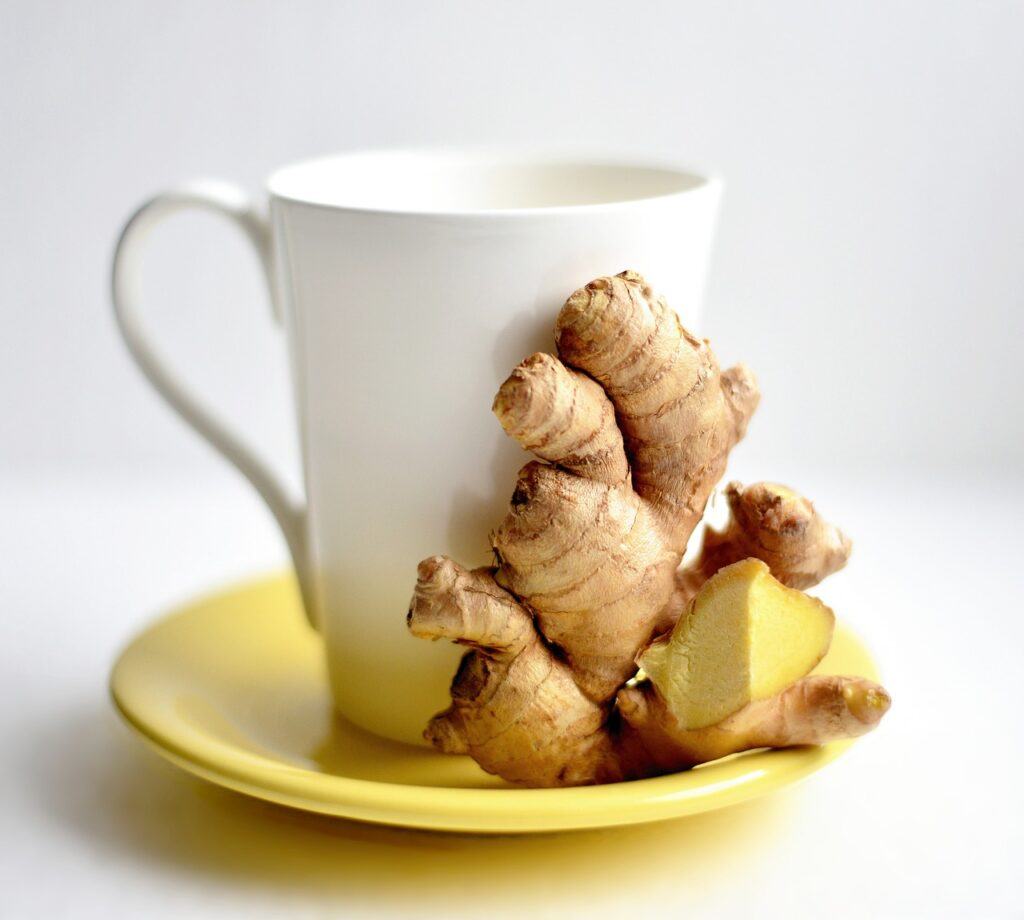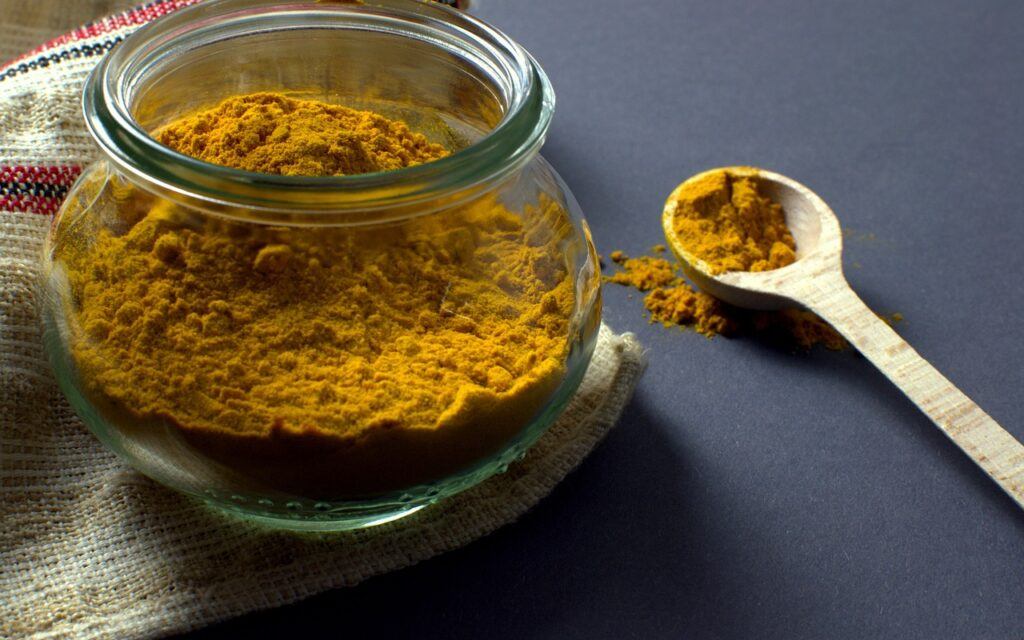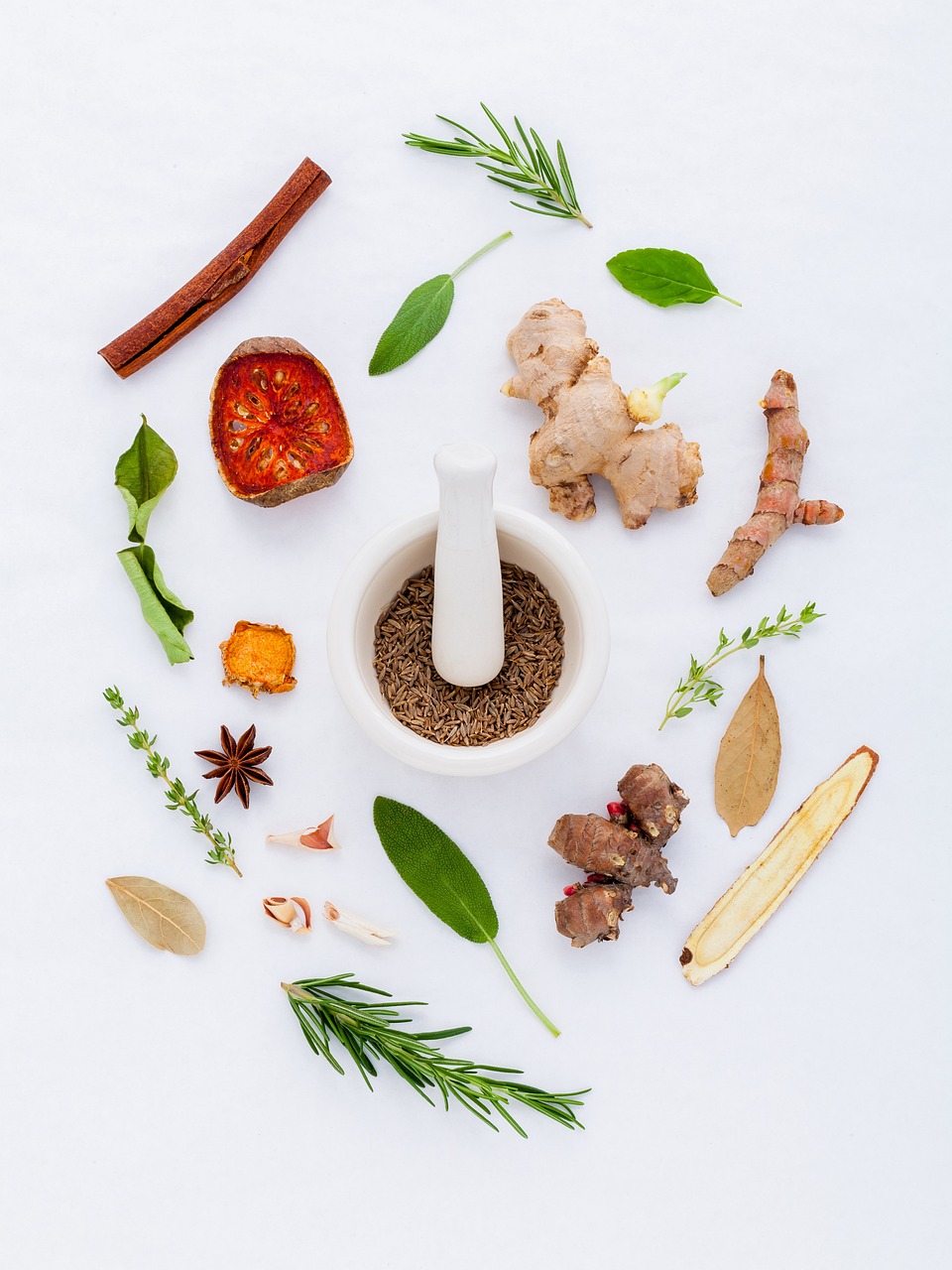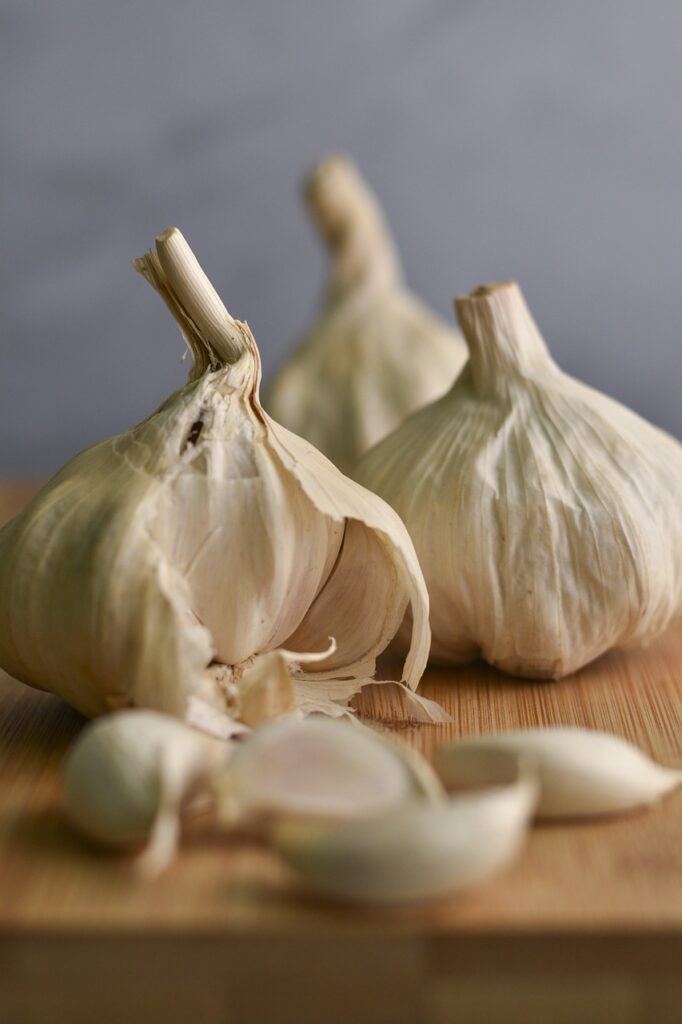At times, we all feel a little run down and could use a boost to our immune system. It’s during these moments that we often turn to herbs and spices to help give our bodies that extra support they need. Whether it’s fighting off a cold or simply maintaining our overall health, there are certain herbs and spices that have been renowned for their immune-boosting properties. In this blog post, we want to share with you some of these incredible natural remedies that might just become your new go-to when it comes to strengthening your immune system. So, grab a cup of tea and join us as we delve into the world of immune-boosting herbs and spices you should know about.
What are immune-boosting herbs and spices?
When it comes to staying healthy, a strong immune system is essential. While a balanced diet, regular exercise, and adequate sleep all play a crucial role in boosting our immune system, there are also specific herbs and spices that can provide an additional immune-boosting effect. In this blog post, we will explore the definition and benefits of immune-boosting herbs and spices and how they can help strengthen our immune system.
Definition of immune-boosting herbs and spices
- Herbs: Herbs are plants or plant parts that are used for their medicinal, culinary, or aromatic properties. In the context of immune-boosting, certain herbs have been found to possess compounds that can enhance the functioning of the immune system.
- Spices: Spices, on the other hand, are dried seeds, fruits, or other plant parts used to season or flavor food. Similar to herbs, some spices contain bioactive compounds that can support and strengthen our immune system.
Benefits of immune-boosting herbs and spices
Including immune-boosting herbs and spices in our diet can offer several benefits:
- Enhanced immune response: Many herbs and spices contain antioxidants, vitamins, minerals, and other bioactive compounds that can help fortify our immune system. These compounds work by neutralizing harmful free radicals and supporting the production of immune cells, ultimately leading to a stronger immune response.
- Reduced inflammation: Chronic inflammation can weaken our immune system and make us more susceptible to diseases. Some herbs and spices, such as turmeric and ginger, possess anti-inflammatory properties that can help reduce inflammation and promote overall immune health.
- Antimicrobial properties: Certain herbs and spices, including garlic and oregano, have natural antimicrobial properties. They can help fight against bacteria, viruses, and fungi, providing an additional line of defense for our immune system.
Key immune-boosting herbs and spices
While there are numerous herbs and spices that offer immune-boosting properties, here are some key ones to consider:
- Echinacea: Echinacea is a herb that has been traditionally used to support the immune system and reduce the severity and duration of common cold symptoms.
- Garlic: Garlic contains allicin, a compound known for its antimicrobial properties. It can help combat infections and strengthen the immune system.
- Turmeric: Turmeric contains curcumin, a powerful antioxidant with anti-inflammatory properties. It can help reduce inflammation and support immune function.
- Ginger: Ginger has immune-boosting properties and is often used to relieve symptoms of respiratory infections, such as cough and sore throat.
- Oregano: Oregano has antimicrobial properties and is rich in antioxidants. It can help fight off infections and support immune health.
How to incorporate immune-boosting herbs and spices into your diet
There are various ways to include immune-boosting herbs and spices in your daily diet:
- Cooking: Add herbs and spices to your favorite dishes, such as soups, stews, curries, or stir-fries, to enhance both the flavor and immune-boosting properties of your meals.
- Teas: Brew herbal teas using immune-boosting herbs like echinacea, ginger, or turmeric. These teas can provide a soothing and immune-boosting effect.
- Supplements: If you find it challenging to incorporate enough herbs and spices into your diet, consider taking herbal supplements. However, it is important to consult with a healthcare professional before starting any new supplement regimen.
In conclusion, immune-boosting herbs and spices can provide additional support to our immune system. By incorporating these natural ingredients into our diet, we can enhance our immune response, reduce inflammation, and protect ourselves from illnesses. Whether through cooking, herbal teas, or supplements, there are various ways to reap the immune-boosting benefits of these herbs and spices. Start experimenting with different flavors and enjoy the added benefits of a strengthened immune system.
Popular immune-boosting herbs
In today’s fast-paced world, it’s important to take care of our immune system to stay healthy and strong. One way to do this is by incorporating immune-boosting herbs into our daily routine. In this blog post, we will explore some of the most well-known herbs that have been traditionally used for their immune-boosting properties. We will delve into their benefits, how to use them, and any precautions to keep in mind.
Echinacea (Echinacea purpurea)
- Benefits:
- Boosts the production of white blood cells, which are crucial for a strong immune system.
- Possesses antiviral and antibacterial properties.
- May help reduce the duration and severity of cold and flu symptoms.
- Usage:
- Available in various forms such as tea, tincture, or capsules.
- Recommended dosage: 300-500 mg, three times a day.
- Precautions:
- Avoid prolonged use (more than 8 weeks) to prevent a decrease in effectiveness.
- People with autoimmune disorders should consult a healthcare professional before using echinacea.
Garlic (Allium sativum)
- Benefits:
- Contains compounds that have antimicrobial and antioxidant properties.
- Helps stimulate the production of immune cells.
- May aid in reducing the risk of getting sick.
- Usage:
- Can be consumed raw, cooked, or in supplement form.
- Recommended dosage: 2 to 4 cloves of fresh garlic per day.
- Precautions:
- Garlic may interact with certain medications, so consult a healthcare professional if you are taking any.
Elderberry (Sambucus nigra)

- Benefits:
- Rich in antioxidants that help protect against oxidative stress.
- Contains compounds that inhibit viral replication.
- May reduce the severity and duration of cold and flu symptoms.
- Usage:
- Available in the form of syrup, capsules, or dried berries for tea.
- Recommended dosage: Follow the instructions on the product label.
- Precautions:
- Raw or unripe elderberries can cause nausea, vomiting, and diarrhea, so ensure they are properly processed before consumption.
- Consult a healthcare professional before using elderberry if you are on immunosuppressive medications.
Ginger (Zingiber officinale)

- Benefits:
- Possesses anti-inflammatory and antioxidant properties.
- Helps stimulate the immune system.
- May aid in reducing inflammation.
- Usage:
- Can be consumed fresh, in tea, or as a supplement.
- Recommended dosage: 1-2 grams of fresh ginger per day.
- Precautions:
- Excessive consumption of ginger may cause digestive upset, so moderation is key.
- Ginger may interact with certain medications, so consult a healthcare professional if you are taking any.
Turmeric (Curcuma longa)

- Benefits:
- Contains curcumin, a compound with potent anti-inflammatory and antioxidant effects.
- Enhances immune responses.
- May help reduce the risk of chronic diseases.
- Usage:
- Can be added to food or taken as a supplement.
- Recommended dosage: 500-2,000 mg of curcumin per day.
- Precautions:
- High doses of turmeric may cause stomach upset, so start with small amounts and gradually increase.
- Consult a healthcare professional before using turmeric if you are on blood-thinning medications.
Powerful spices for immune system support
Spices have been used for centuries not just to add flavor to our food, but also for their medicinal properties. Many spices contain compounds that can help boost our immune system and protect us from infections. In this blog post, we will explore some of the most powerful spices for immune system support and discuss their specific properties, ways to incorporate them into our diet, and any potential side effects.
1. Turmeric
Properties: Turmeric contains a compound called curcumin, which has potent anti-inflammatory and antioxidant effects. It can help strengthen the immune system and protect against chronic diseases.
Incorporation:
- Add turmeric powder to curries, soups, and stews.
- Make a golden milk latte by mixing turmeric powder with warm milk and a pinch of black pepper.
- Use it as a seasoning for roasted vegetables or scrambled eggs.
Side Effects: Turmeric is generally safe for most people when consumed in moderate amounts. However, high doses may cause digestive issues or interact with certain medications.
2. Ginger
Properties: Ginger contains gingerol, a bioactive compound with strong anti-inflammatory and antioxidant properties. It can help enhance immune function and reduce the risk of infections.
Incorporation:
- Brew ginger tea by steeping fresh ginger slices in hot water.
- Grate ginger and add it to stir-fries, marinades, or smoothies.
- Use powdered ginger in baking recipes and spice blends.
Side Effects: Ginger is safe for most people when consumed in moderation. However, excessive amounts may cause digestive discomfort or interact with certain medications.
3. Garlic
Properties: Garlic is packed with sulfur-containing compounds like allicin, which have antimicrobial and immune-boosting properties. It can help fight off infections and support overall immune health.
Incorporation:
- Crush or mince garlic cloves and let them sit for a few minutes to activate the beneficial compounds before cooking.
- Add garlic to sauces, dressings, and marinades.
- Roast whole garlic cloves and spread the soft garlic on bread or vegetables.
Side Effects: Garlic is generally safe when consumed in culinary amounts. However, excessive intake may cause digestive discomfort or interact with certain medications.
4. Cinnamon
Properties: Cinnamon contains powerful antioxidants and has anti-inflammatory effects. It can help enhance immune function and protect against chronic diseases.
Incorporation:
- Sprinkle cinnamon on oatmeal, yogurt, or smoothies.
- Use it in baking recipes, such as cookies or muffins.
- Add a stick of cinnamon to hot beverages like tea or coffee.
Side Effects: Cinnamon is safe for most people when consumed in moderation. However, high doses of cinnamon extract may be toxic and cause liver damage.
5. Cayenne Pepper
Properties: Cayenne pepper is rich in a compound called capsaicin, which has antimicrobial and immune-boosting properties. It can help improve circulation and stimulate the immune system.
Incorporation:
- Sprinkle cayenne pepper on roasted vegetables or soups.
- Use it in marinades or rubs for meats.
- Add a pinch of cayenne pepper to hot chocolate for a spicy twist.
Side Effects: Cayenne pepper is generally safe when consumed in culinary amounts. However, excessive intake may cause digestive discomfort or interact with certain medications.
Incorporating these powerful spices into your diet can provide a natural boost to your immune system. Remember to use them in moderation and consult with a healthcare professional if you have any underlying health conditions or are taking medications.
Key Points:
- Turmeric, ginger, garlic, cinnamon, and cayenne pepper are powerful spices for immune system support.
- They contain compounds with anti-inflammatory, antioxidant, and antimicrobial properties.
- Incorporate these spices into your diet through cooking, baking, or beverages.
- Use them in moderation and be aware of potential side effects or interactions with medications.
So, why not spice up your meals with these immune-boosting ingredients and enjoy the flavorful health benefits they provide?
Tips for incorporating herbs and spices into your daily routine
Herbs and spices have been used for centuries not only to enhance the flavors of our dishes but also for their medicinal properties. Incorporating immune-boosting herbs and spices into our daily routine can provide numerous health benefits, from strengthening our immune system to reducing inflammation. In this blog section, we will provide practical tips on how to integrate these beneficial ingredients into our meals and drinks.
1. Start Your Day with a Spiced Breakfast
Kickstart your day with a nutrient-packed and flavorful breakfast by adding herbs and spices to your morning meal. Here are some ideas:
- Sprinkle cinnamon on your oatmeal or yogurt to help regulate blood sugar levels and reduce inflammation.
- Add turmeric to your scrambled eggs or tofu scramble for its powerful anti-inflammatory properties.
- Infuse your morning tea or coffee with ginger to boost digestion and reduce nausea.
2. Spice Up Your Lunch and Dinner
Enhance the taste and nutritional value of your meals by incorporating herbs and spices. Here are some suggestions:
- Create a marinade using a combination of garlic, rosemary, and thyme to flavor your grilled chicken or roasted vegetables.
- Sprinkle cayenne pepper into your soups or stews to not only add a kick of heat but also to boost your metabolism.
- Add fresh basil or oregano to your homemade pasta sauce for a burst of flavor and antioxidants.
3. Sip on Herbal Infusions and Teas
Enjoy the benefits of herbs and spices by incorporating them into your beverages. Here’s how:
- Brew a cup of chamomile tea with a dash of lavender to help relax your mind and promote better sleep.
- Prepare a refreshing iced tea by steeping hibiscus flowers with mint leaves and a squeeze of lemon for a vitamin C boost.
- Create your own herbal infusions by combining herbs like lemon balm, nettle, and dandelion to support your overall well-being.
4. Snack on Spiced Nuts and Seeds
Elevate your snack game by adding herbs and spices to nuts and seeds. Try the following:
- Toss almonds or cashews with a mix of cumin, coriander, and paprika for a flavorful and crunchy snack.
- Roast pumpkin seeds with a sprinkle of cinnamon and nutmeg for a delicious and immune-boosting treat.
- Create a savory spice mix using rosemary, garlic powder, and chili flakes to coat your roasted chickpeas.
5. Experiment with Homemade Herbal Remedies
Get creative in the kitchen and explore the world of homemade herbal remedies. Here are a few ideas:
- Make a soothing ginger and turmeric tea to alleviate cold and flu symptoms.
- Infuse olive oil with fresh herbs like thyme, rosemary, and basil to use as a flavorful dressing or for cooking.
- Create your own herbal tinctures by steeping herbs like echinacea or elderberry in alcohol to boost your immune system.
Remember, incorporating herbs and spices into your daily routine doesn’t have to be complicated. Start small, experiment with different flavors, and gradually increase your usage. Whether you’re looking to boost your immune system, enhance your meals, or simply enjoy new flavors, herbs and spices can be a valuable addition to your daily routine.
So why not harness the power of these natural ingredients and reap their numerous health benefits? Start incorporating herbs and spices into your meals and drinks today and enjoy a flavorful journey to better health!
Discover the power of nature’s immune-boosting herbs and spices
In conclusion, we have explored a variety of immune-boosting herbs and spices that can play a significant role in supporting our overall health. From the powerful antioxidants found in turmeric and ginger, to the antibacterial properties of garlic and oregano, these natural ingredients have been used for centuries to strengthen the immune system.
When incorporating these herbs and spices into our daily lives, it is important to consider factors such as personal preferences, existing medical conditions, and potential drug interactions. It is always advisable to consult with a healthcare professional before making any significant changes to our diet or supplementation routine.
Ultimately, by harnessing the power of these immune-boosting herbs and spices, we can add an extra layer of protection to our immune system and promote overall wellness. Whether we choose to use them in our cooking, teas, or as supplements, these natural remedies can be valuable allies in maintaining a strong and resilient immune system.
Remember, a healthy lifestyle is a holistic approach that encompasses various aspects, including a balanced diet, regular exercise, and adequate sleep. By combining these practices with the incorporation of immune-boosting herbs and spices, we can significantly enhance our body’s ability to fight off infections and stay healthy. Stay well, and may these natural remedies contribute to your overall well-being.



